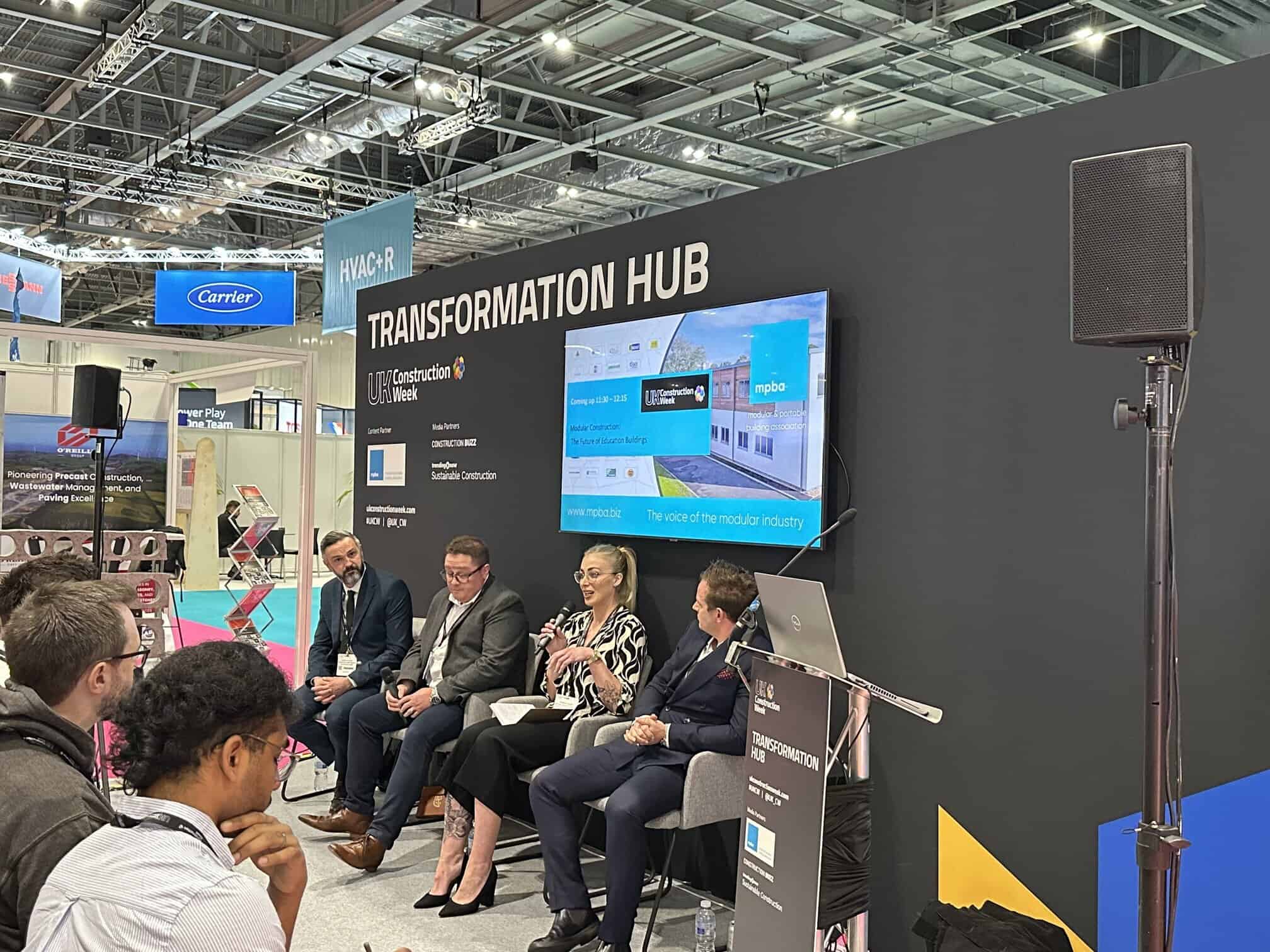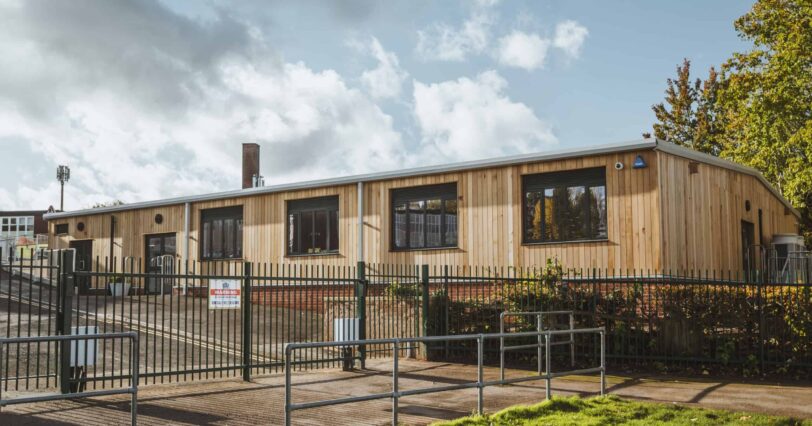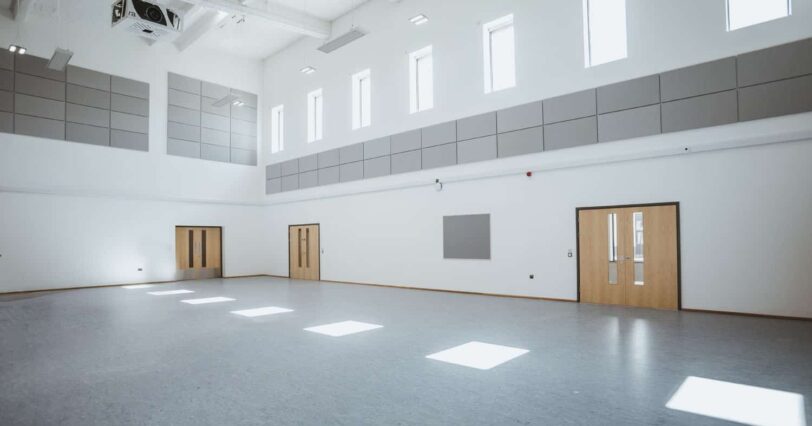One of the biggest events in the construction calendar may have been and gone for another year, but before the dust fully settles, we wanted to share our key takeaways from the event with you.
Our National Educational Manager, Hannah Gains, played a key role in the UKCW 2025 Seminar Programme. She was on the Modular Construction: The Future of Educational Buildings MBPA panel, which explored how modular construction is shaping the way schools and educational facilities are designed, built and delivered. She was joined by fellow experts from Vision Built, TG Escapes and Pickerings Hire for the 45-minute session.
Here are her top three takeaways:
1.The education sector is a catalyst…
For future MMC-driven change – the sector is increasingly being recognised as having a pivotal part to play in the Government’s drive towards achieving net zero by 2050 (take its Climate and Sustainability Strategy, for instance). Given the sheer scale of the education sector, which is larger than all of the other public sector organisations combined, it can act as a catalyst to accelerate future sustainability-focused change.
Let’s not forget, schools are found in the heart of most communities, with one in six people visiting a school every single day, which accounts for 37% of public sector emissions. The education sector has so much untapped potential when it comes to pioneering MMC solutions and paving the way for other sectors to follow.
2. Early conversations with MMC providers…
Can potentially lead to reduced costs – the subject of costs featured throughout the session, particularly the importance of schools engaging early on with MMC specialists, like Net Zero Buildings, to enable us to manage expectations and explore whole life costs.
While costs vs. budgets will always, quite understandably, influence school estate manager’s decisions to invest in sustainable solutions, or any form of improvements, there are positives – pay-back periods, as well as reduced running costs. While it can be tempting to focus on the here and now cost, thinking longer-term value rather than choosing the cheapest option, can pay dividends.
3. Inclusive design is the answer…
To making sure schools are fit for purpose – with declining pupil numbers and increasing numbers of children with Special Educational Needs and Disabilities (SEND), today’s educational estates may not necessarily be geared up to fully support students.
However, incorporating inclusive and adaptable design elements from specific schools into mainstream schools can help bridge this gap, particularly given the fact more than 80% of SEND children attend mainstream schools. The good news is, is that the Government has already taken some positive steps forward by introducing school-based nurseries and repurposing its existing assets. But there’s still more work to be done in relation to using green materials and technologies to reduce the risk of overheating and flooding and create future-proofed and resilient educational estates.
For more information about how schools can benefit from modular, sustainability-focused design, get in touch. To find out more about how we have helped schools accelerate their zero carbon journeys, plus more, take a look at our latest case studies.







